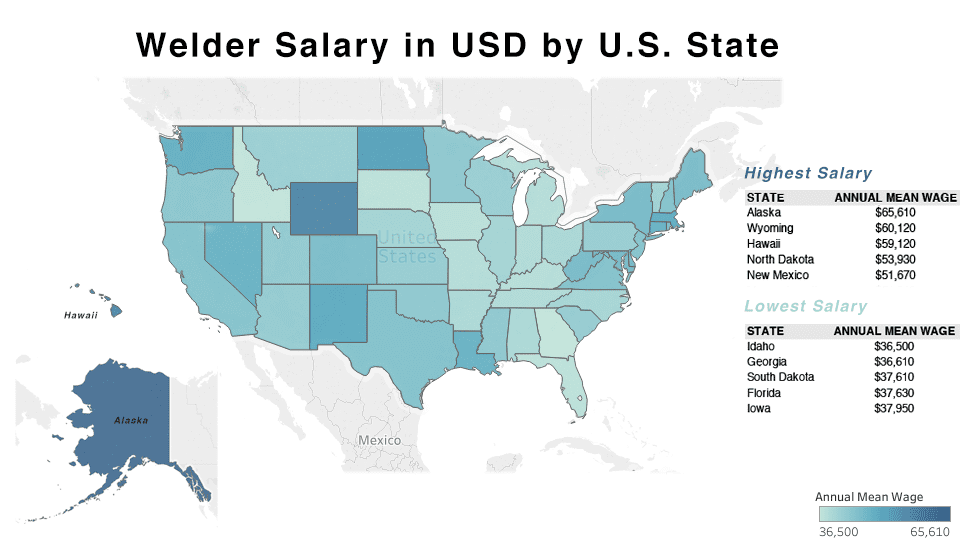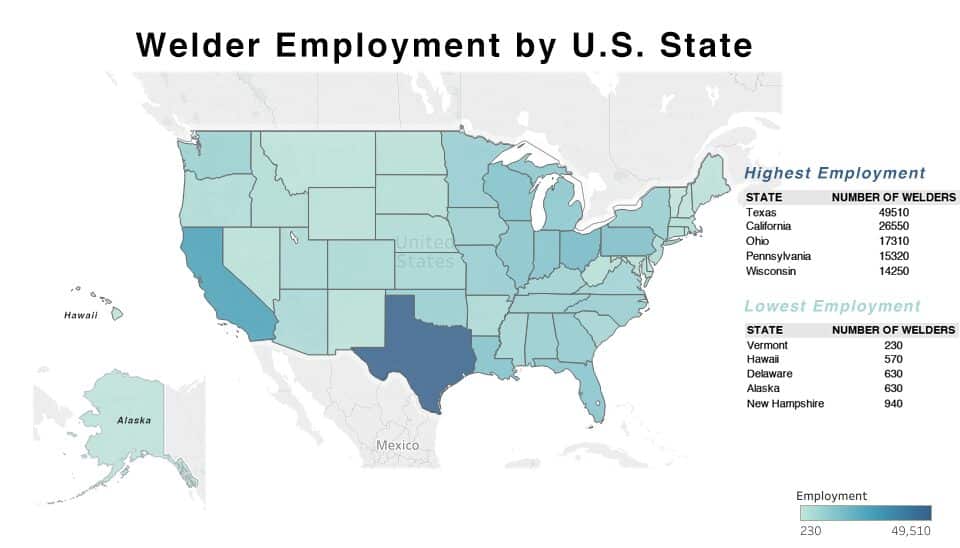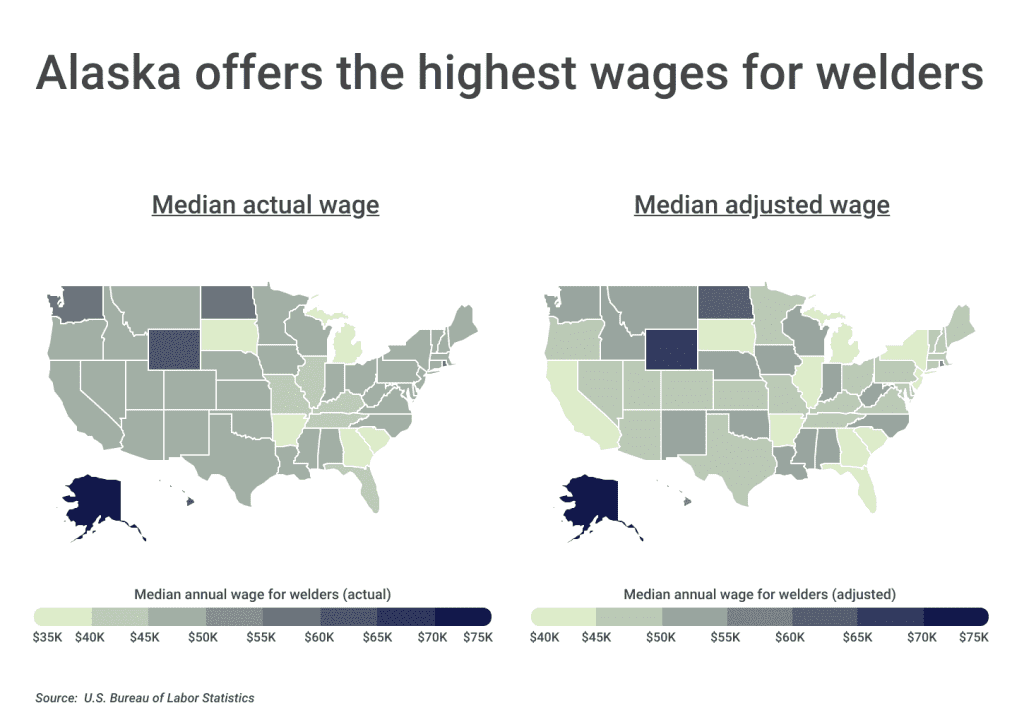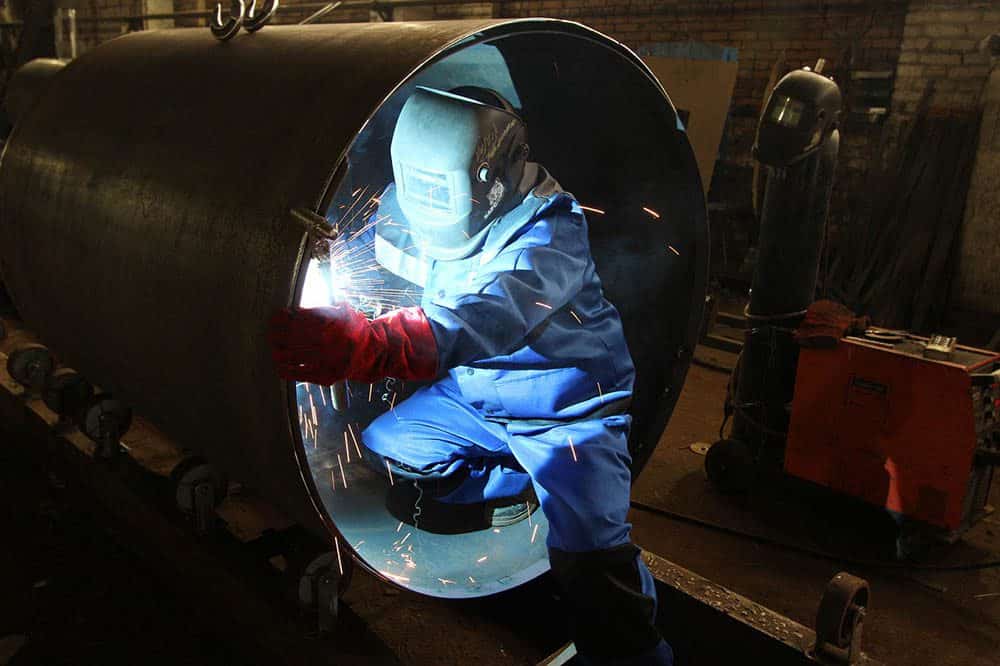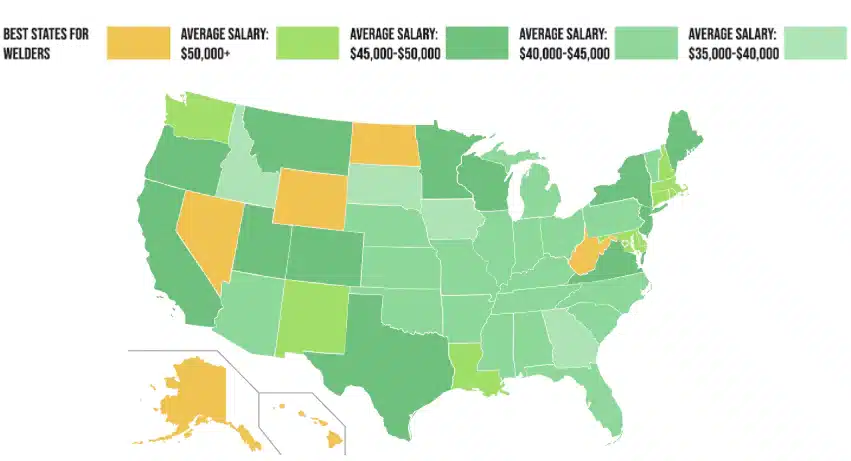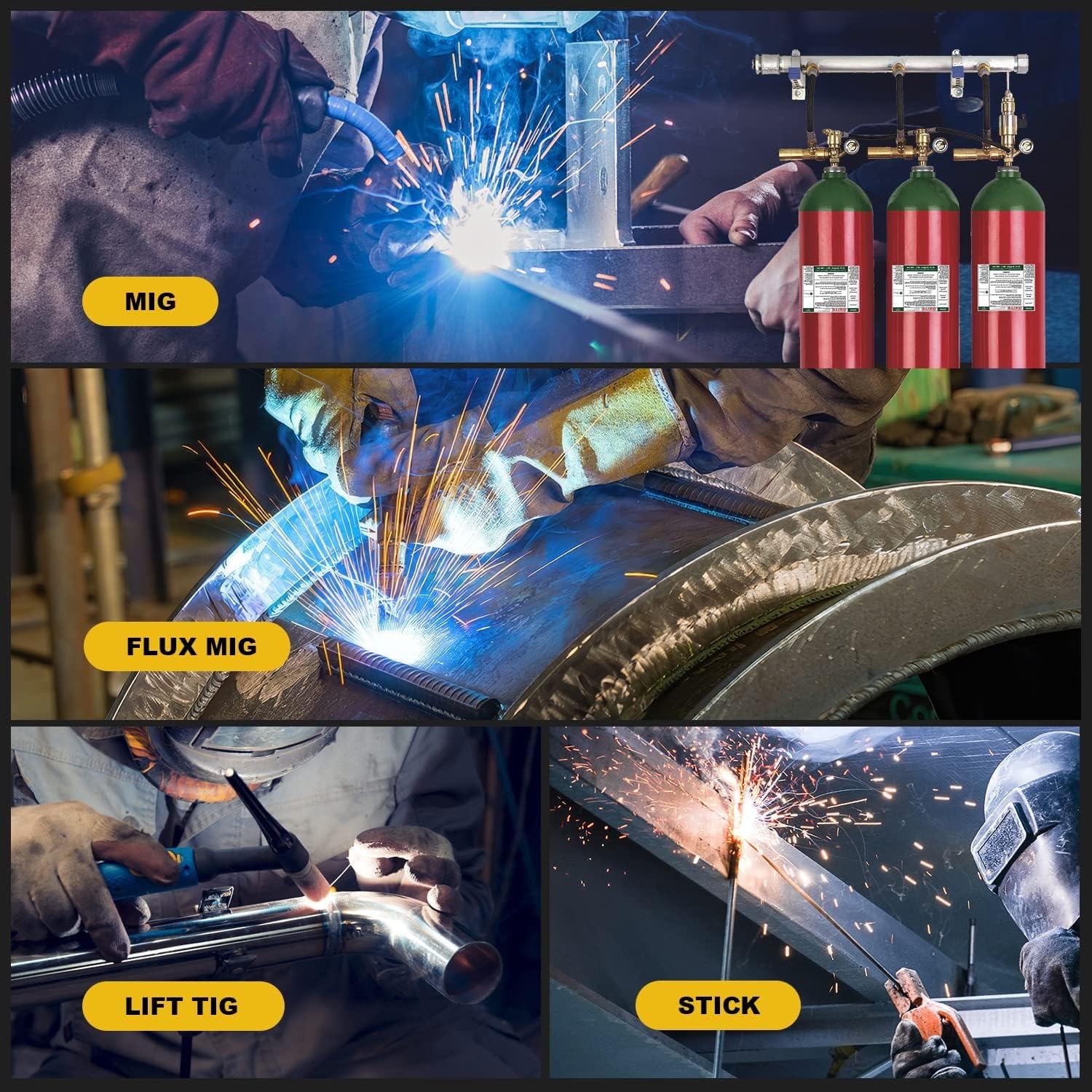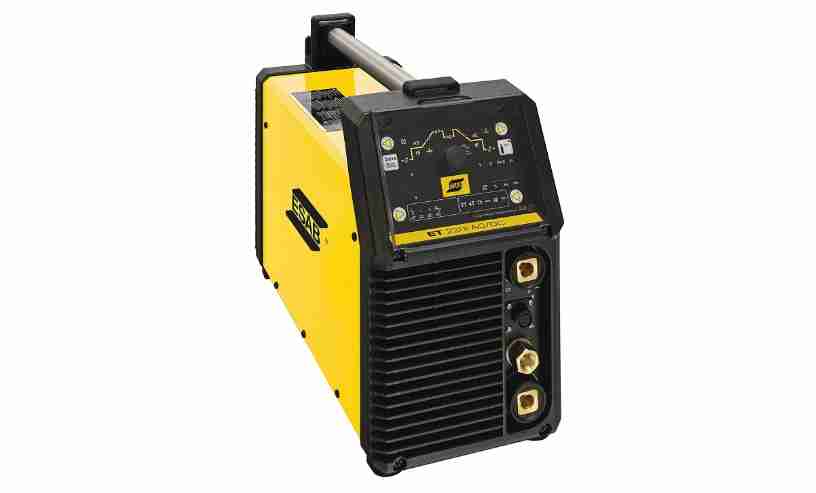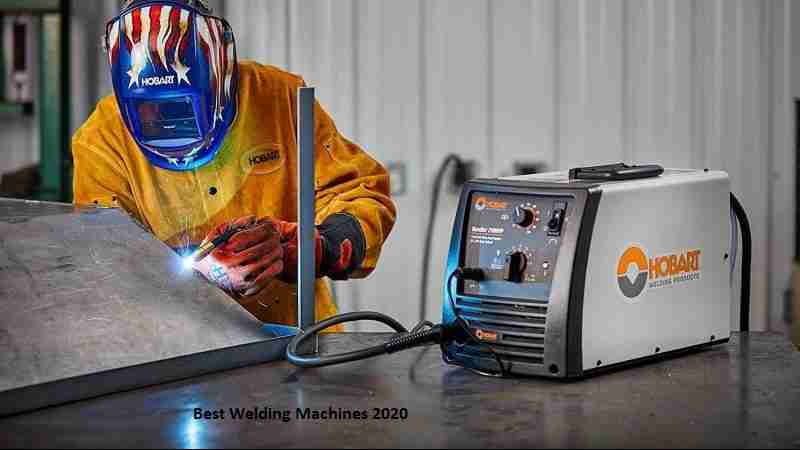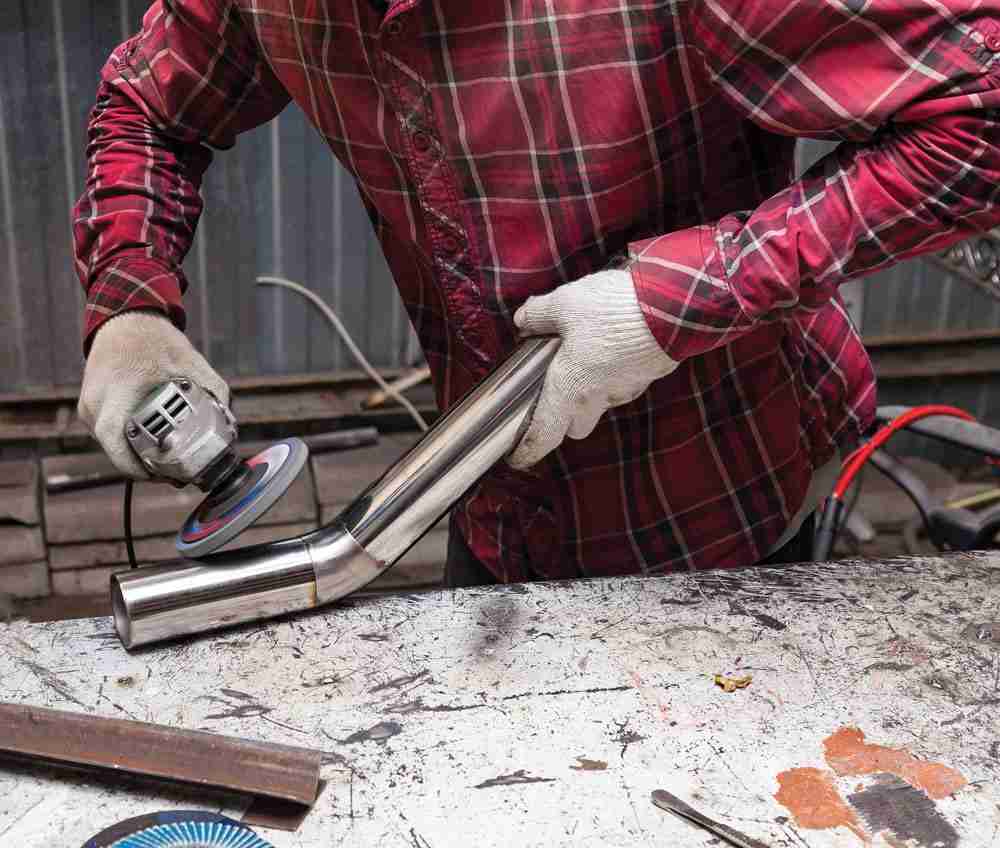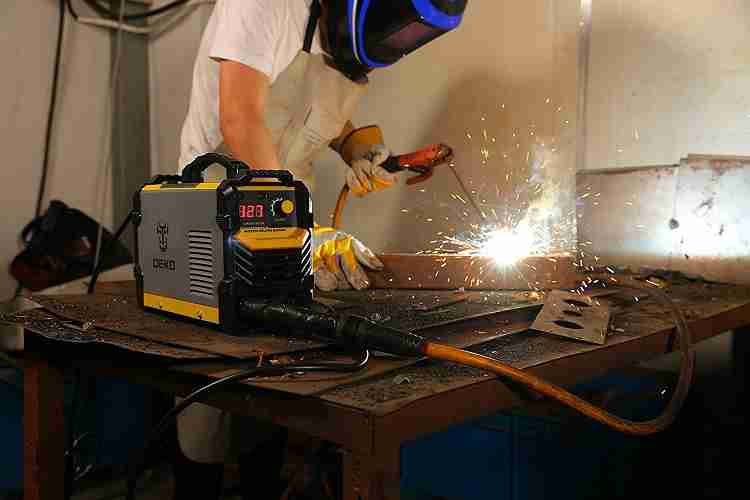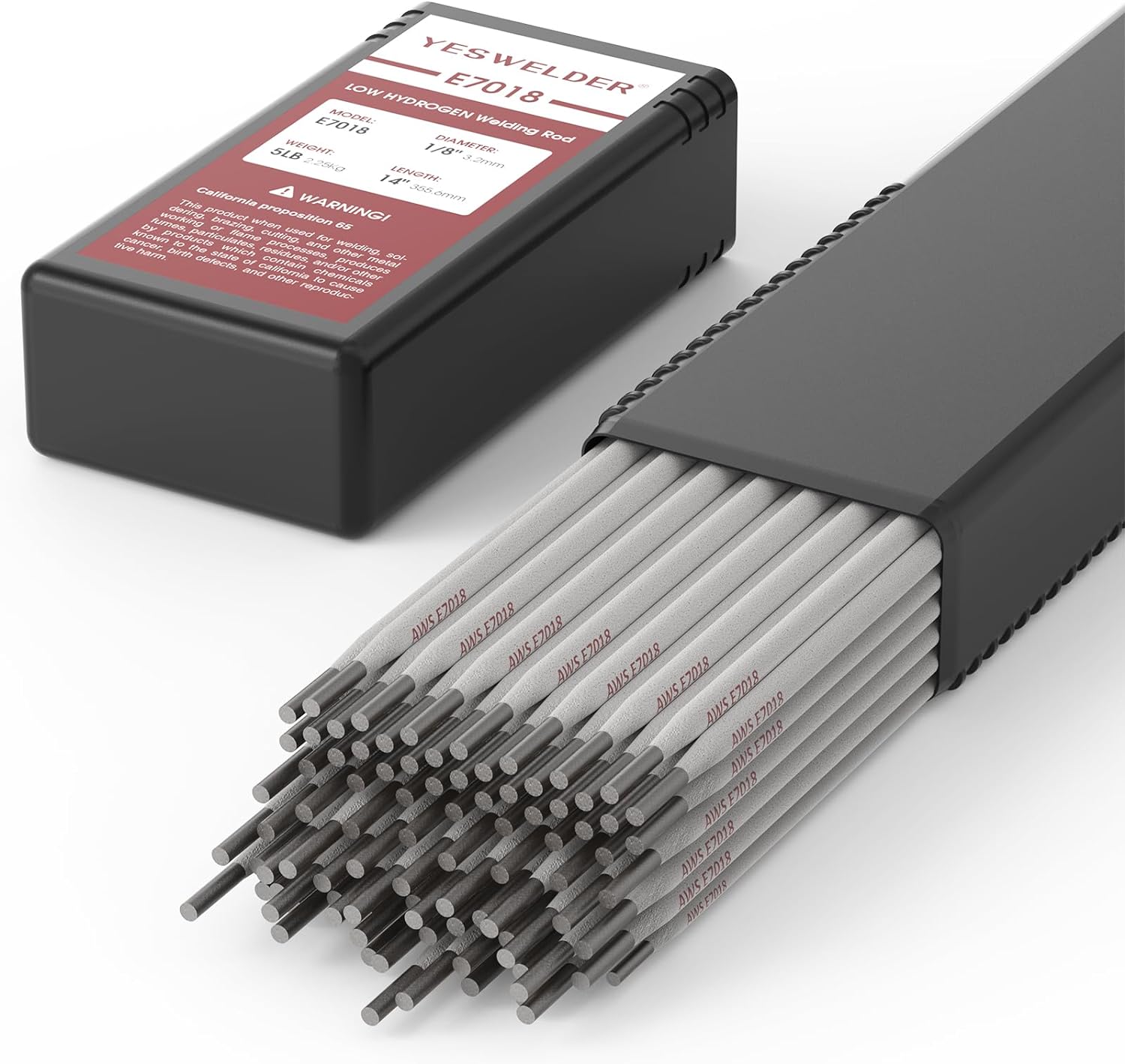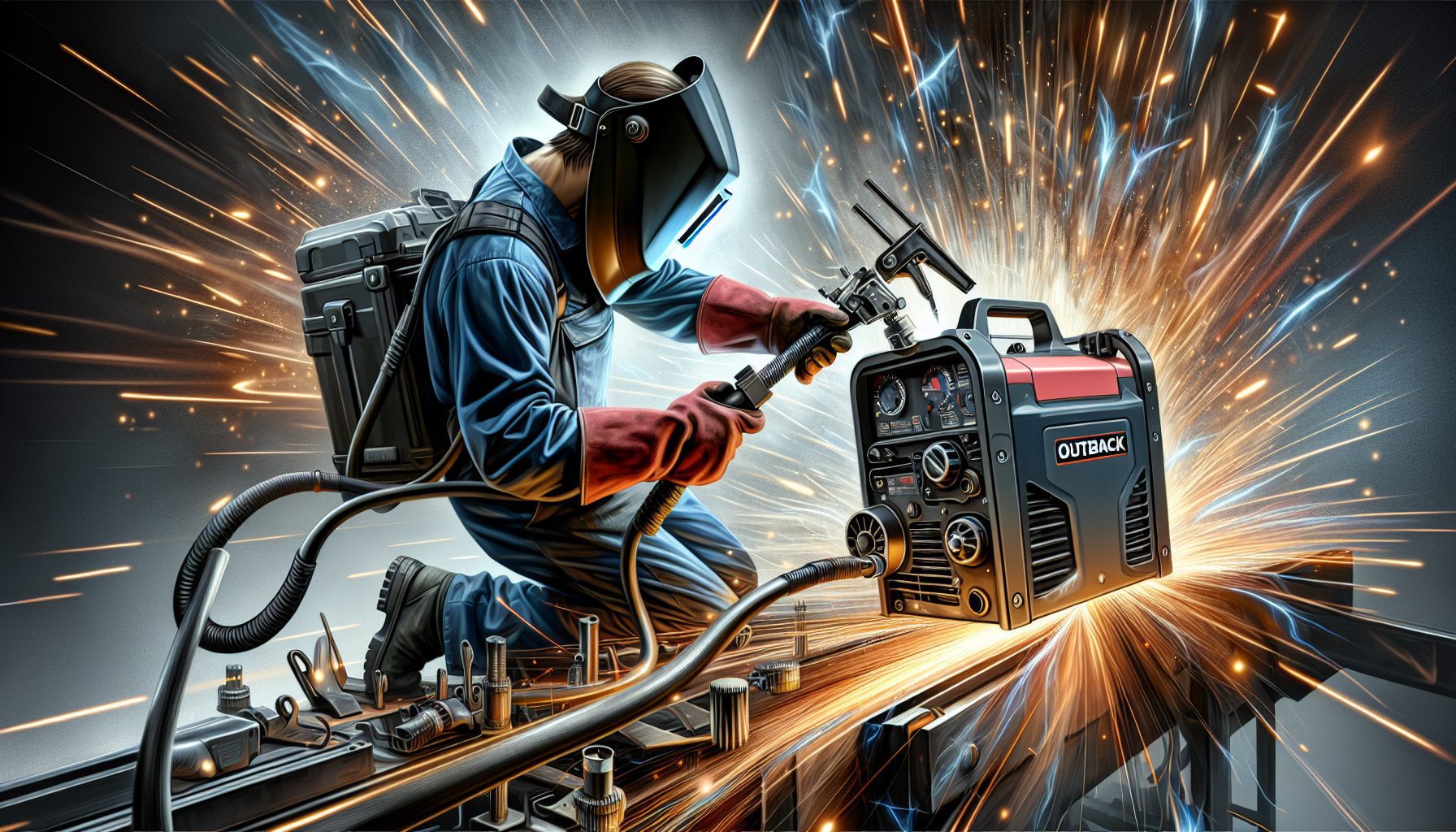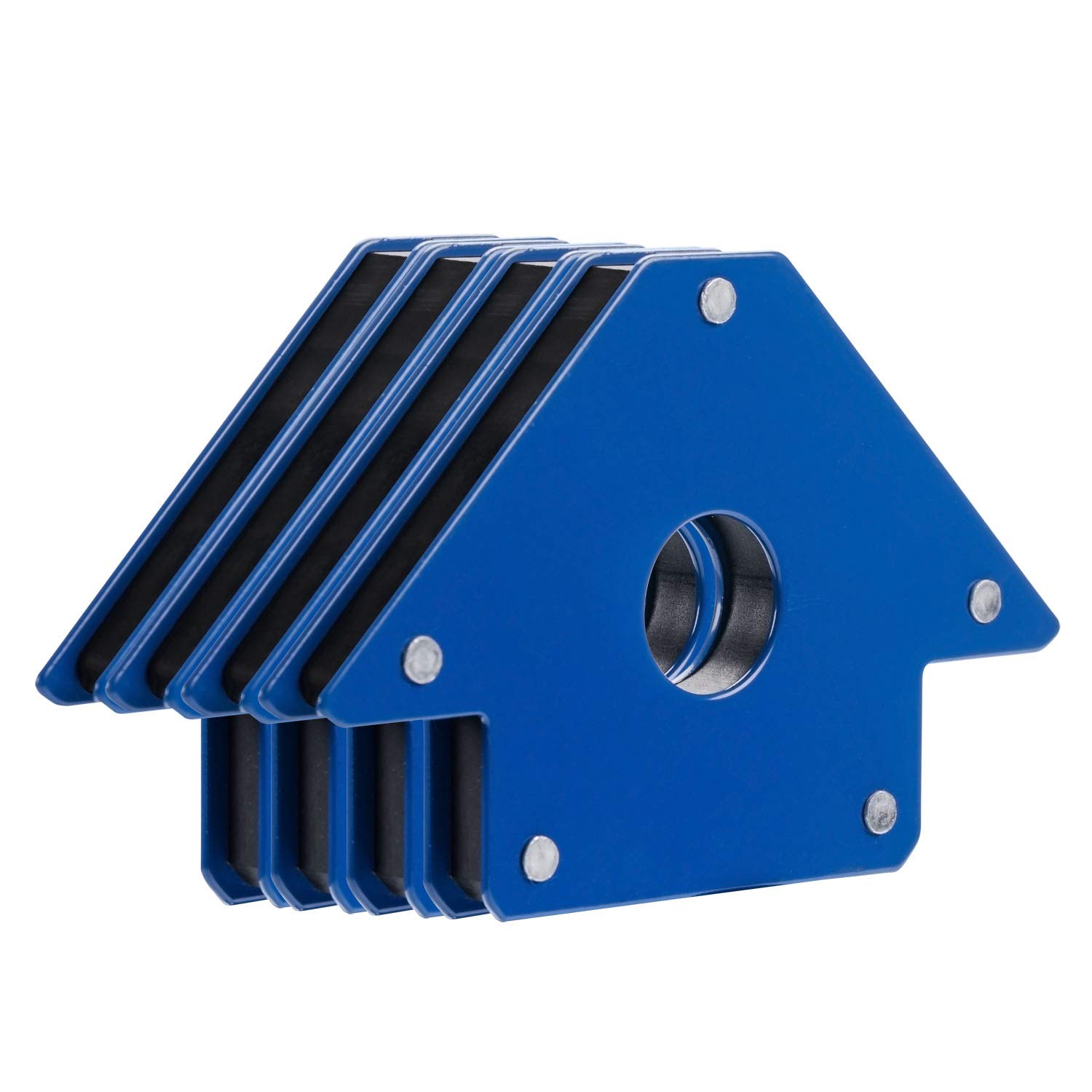If you’ve been considering a career as a welder, you may wonder where the best opportunities lie.
With countless states nationwide offering different opportunities and wages for welders, it can be overwhelming to choose where to start.
From job availability to average salaries, this article will provide a comprehensive overview of the best state to be a welder in, giving you insights to help make your decision easier and set you on the path to a fulfilling career.
Factors to Consider in Choosing the Best State for Welders
As a welder, choosing the best state to work in is an important decision that can have a significant impact on your career and quality of life.
There are several factors you should consider when evaluating different states, including job opportunities, salary and benefits, cost of living, certification requirements, education and training institutions, unemployment rate, safety and occupational health regulations, and professional associations and networking opportunities.
This article will explore these factors in more detail to help you make an informed decision.
1. Job Opportunities
1.1 Industrial Growth
When considering job opportunities, assessing the industrial growth in the state you are considering is essential. States with thriving industrial sectors, such as manufacturing, construction, and oil and gas, often provide numerous job opportunities for welders.
Look for states with a strong presence in industries that rely heavily on welding services. These industries typically offer a higher demand for skilled welders, ensuring a steady work flow.
1.2 Construction Projects
Another significant factor to consider is the number of construction projects in the state.
Construction projects often require welders for various tasks, such as structural welding, pipe welding, and metal fabrication. States with a booming construction industry offer more job opportunities for welders, especially in metropolitan areas where large-scale construction projects are expected.
1.3 Manufacturing Sector
The strength of the manufacturing sector in a state can also influence the availability of welding jobs.
States with a robust manufacturing industry tend to require skilled welders to assemble, repair, and maintain machinery and equipment.
Consider states that are known for their manufacturing prowess and have diverse industries within this sector.
2. Salary and Benefits
As with any career, salary and benefits are crucial in decision-making.
Researching and comparing the average wages and benefits offered to welders in different states is essential.
Factors such as cost of living, demand for welders, and industry standards can significantly impact the earning potential. Look for states where welders are compensated relatively and receive competitive benefits packages, including health insurance, retirement plans, and paid time off.
3. Cost of Living
While salary is significant, it is equally vital to consider the cost of living in the state you are considering. A higher salary may not necessarily result in a higher standard of living if the cost of housing, groceries, transportation, and other essentials is high.
Calculate the cost of living in each state, including housing prices, taxes, and daily expenses, to determine your overall financial situation. Balancing a competitive salary with a reasonable cost of living is vital to enjoying a comfortable lifestyle.
4. Welder Certification Requirements and Licensing
Before starting your career as a welder, it is essential to understand the certification requirements and licensing procedures in each state.
Some states have specific requirements and examinations that welders must pass to obtain certain certifications.
Research the certification programs available in your desired state and ensure they align with your career goals. Additionally, familiarize yourself with any licensing requirements for practicing welding professionally in that state.
5. Education and Training Institutions
The availability and quality of education and training institutions are crucial for aspiring and experienced welders.
Look for states that have reputable vocational schools, technical institutes, and community colleges that offer comprehensive welding programs.
These institutions should provide hands-on training, access to modern equipment, and experienced instructors. A solid educational foundation can enhance your skills, improve your employability, and increase your chances of career advancement.
6. Unemployment Rate
Understanding the unemployment rate in a state can give you insight into the job market’s overall health. A low unemployment rate indicates a greater demand for workers, including welders.
States with low unemployment rates often have a more competitive job market, offering stability and a higher chance of employment during economic downturns. Research the historical trends and current statistics on unemployment rates to assess the job market’s stability in each state you are considering.
7. Safety and Occupational Health Regulations
Safety should always be a top priority, especially in high-risk occupations like welding. Evaluate the safety regulations and occupational health standards in each state to ensure that you will be working in a safe and secure environment.
Look for states prioritizing worker safety, enforcing strict regulations, and providing adequate training and protective equipment. Prioritizing safety protects your well-being and enhances job satisfaction and longevity in your welding career.
8. Professional Associations and Networking Opportunities
Being part of professional associations and actively participating in networking opportunities can significantly benefit your welding career. Look for states that have robust professional associations and organizations dedicated to welders.
These associations often provide resources, continuing education opportunities, job boards, and networking events that can strengthen your professional development. A strong network can open doors to new job opportunities, mentorship programs, and industry advancements.
9. Quality of Life
Last, consider the overall quality of life in the states you are evaluating. Quality of life factors include access to healthcare, recreational activities, cultural amenities, natural beauty, and a sense of community.
Assess your preferences and lifestyle priorities to determine which state aligns best with your values and provides the quality of life you desire. A positive work-life balance and a supportive community can contribute to your happiness and job satisfaction.
In conclusion, choosing the best state for a welding career involves evaluating multiple factors.
Consider job opportunities, salary and benefits, cost of living, certification requirements, education and training institutions, unemployment rates, safety regulations, professional associations, and quality of life.
By carefully assessing these factors and aligning them with your career goals and personal preferences, you can make an informed decision that sets you up for success and fulfillment as a welder.



